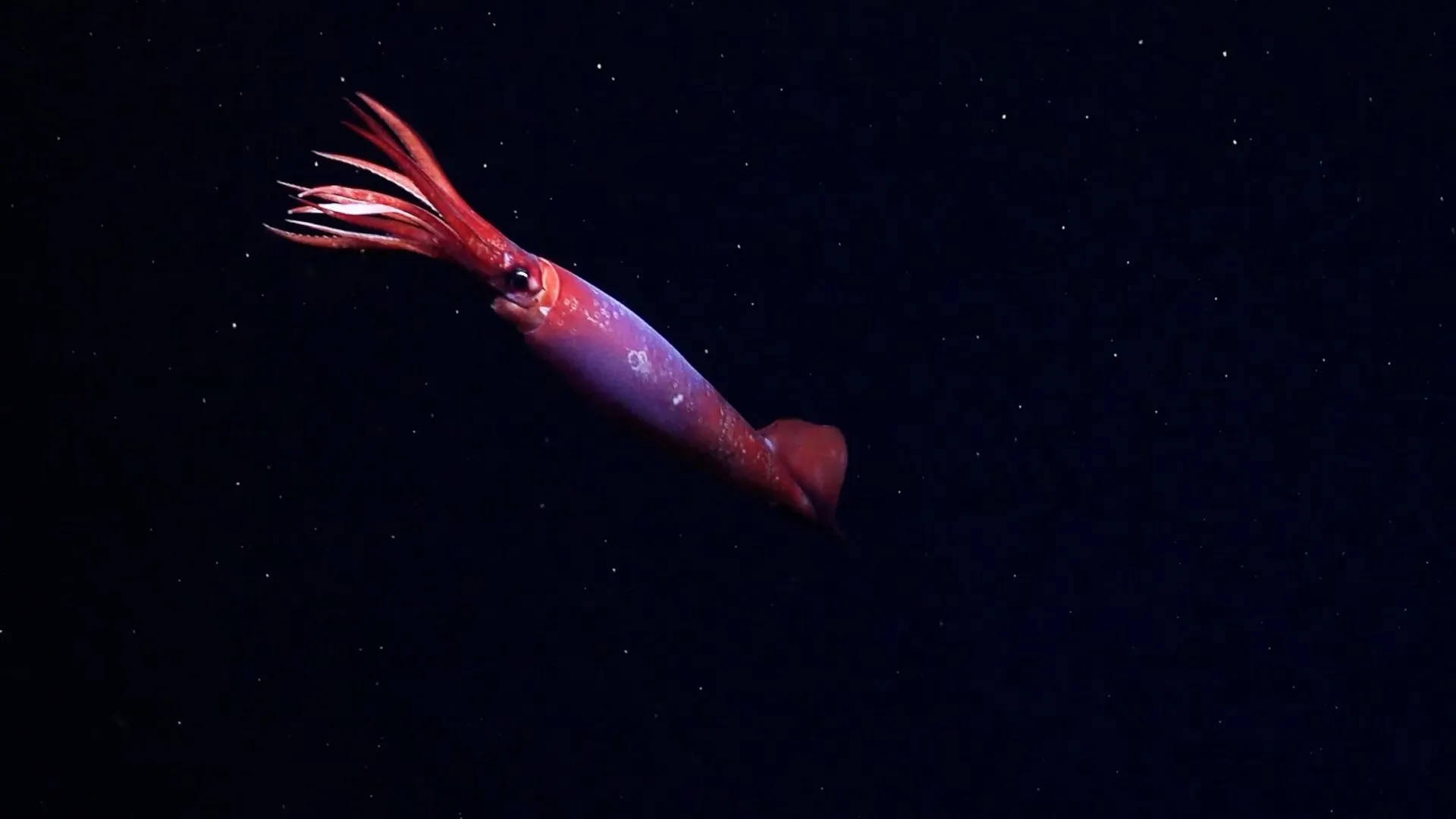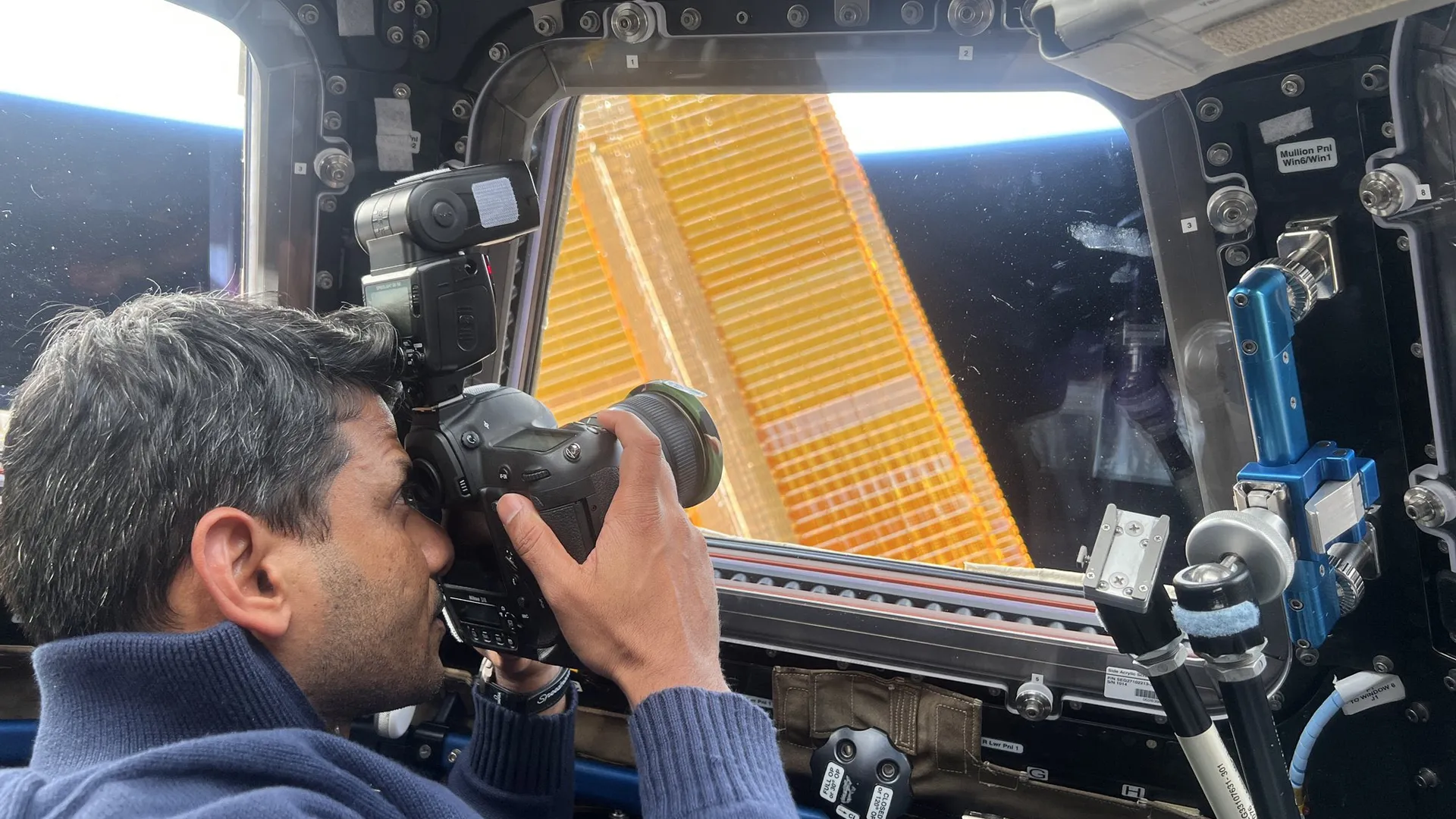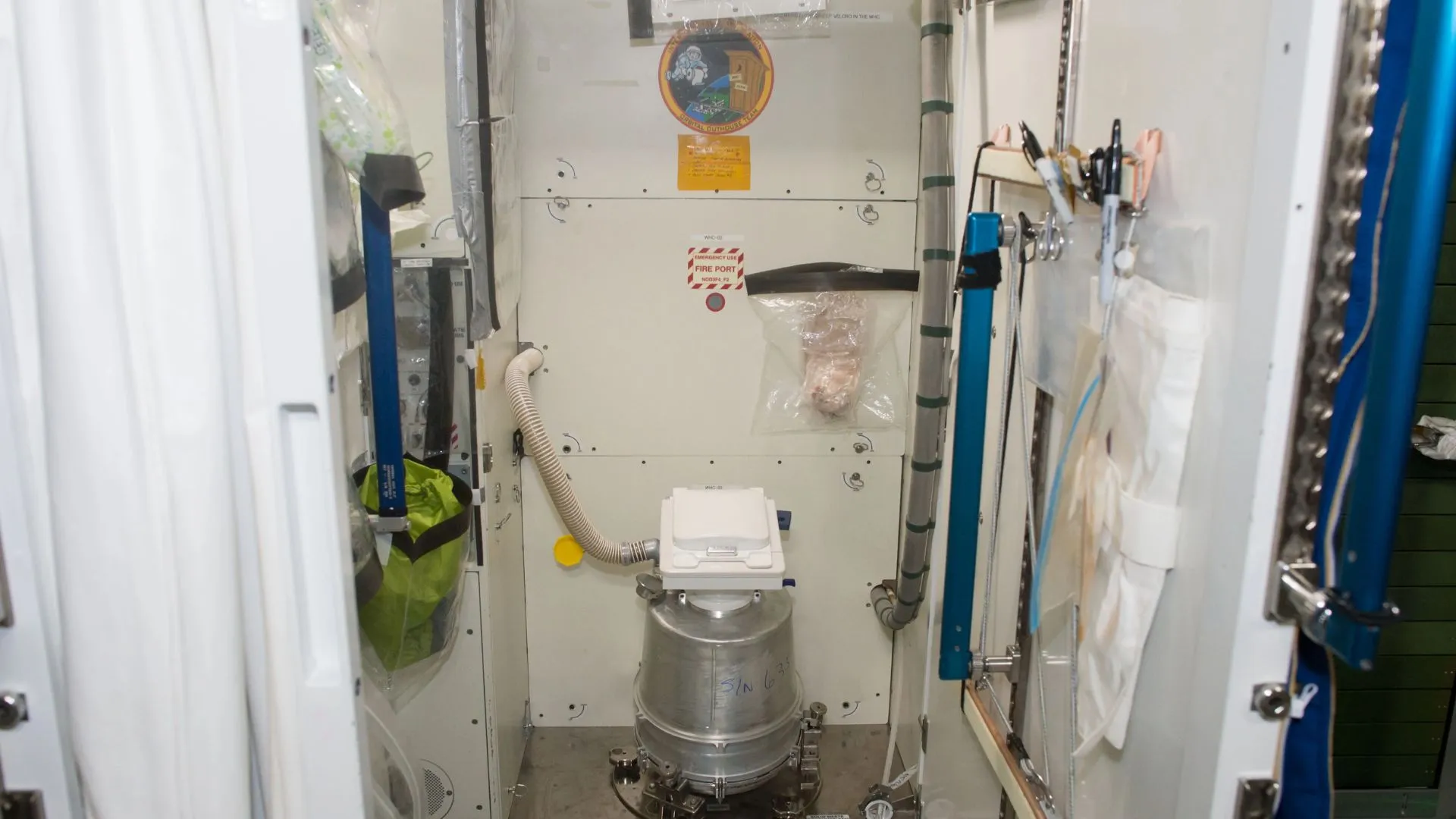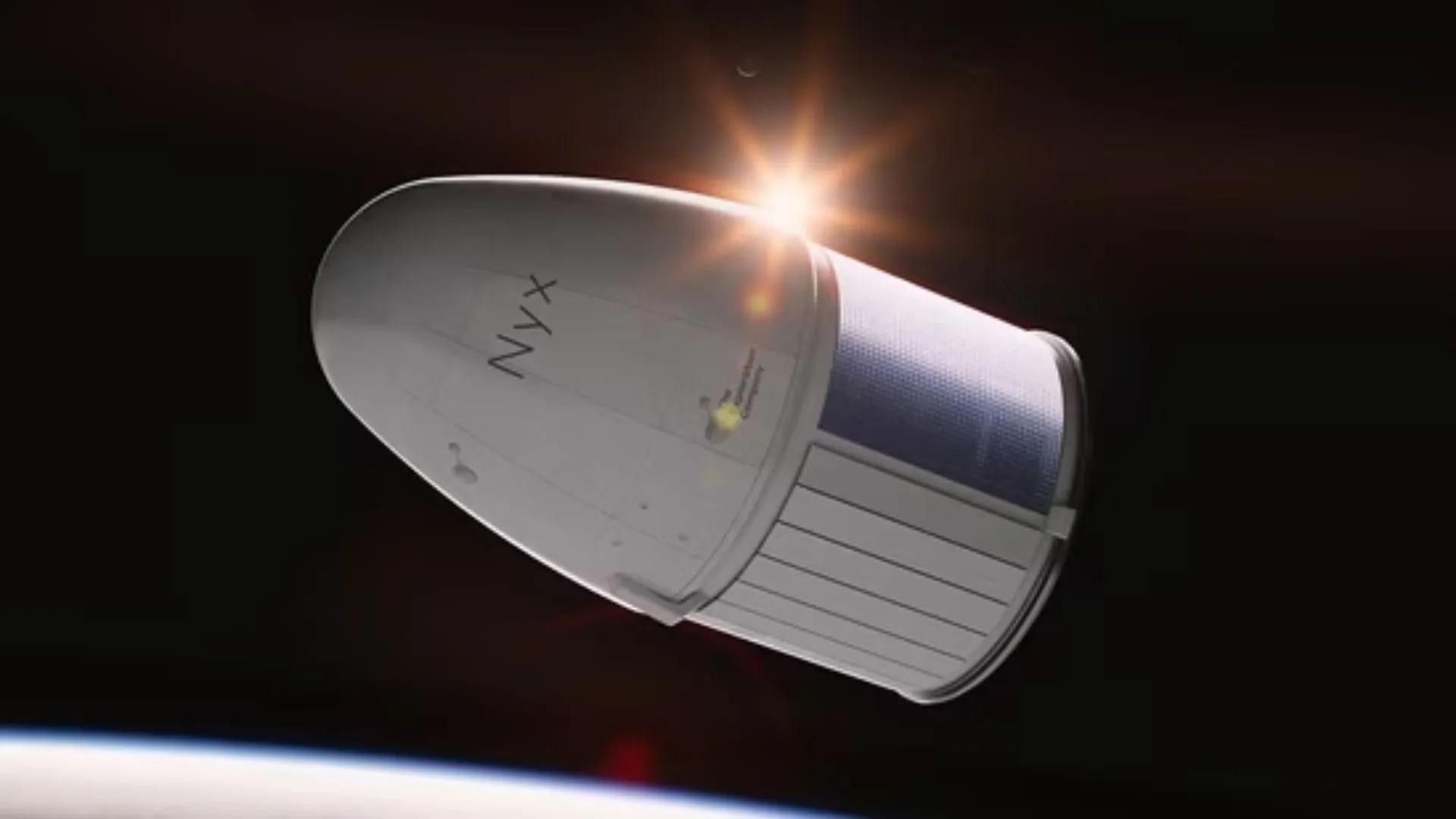After years of observation and a bit of luck, scientists have captured live footage of a deep-sea Antarctic squid species, Gonatus antarcticus, for the very first time, creating history in marine biology.
Shared by National Geographic on June 10, the historic video shows the rarely seen creature moving gracefully through the chilly depths of the Southern Ocean, marking a major milestone in deep-sea exploration.
Rare Antarctic Squid Seen Alive for the First Time
The sighting occurred on Christmas Day, when researchers aboard the Schmidt Ocean Institute’s R/V Falkor (too) used the remotely operated vehicle SuBastian to explore the depths near the Powell Basin. Due to poor weather and sea ice, the team diverted from their original location and stumbled upon the squid at a depth of 2,152 meters (about 7,000 feet).
“We were not supposed to be there and not at that precise moment,” said Manuel Novillo, a postdoctoral researcher from Argentina’s Instituto de Diversidad y Ecología Animal, who first spotted the shadowy creature on the live feed. “Voila, it appeared,” he added.
Presented by National Geographic Society in partnership with Rolex.
A National Geographic Society expedition spotted an Antarctic gonate squid alive for the first time—helping researchers form theories around this mysterious species. https://t.co/Qvs8ferYic pic.twitter.com/fBPBqjZpbZ
— National Geographic (@NatGeo) June 10, 2025
Elusive Species Emerges in Frigid Depths
Previously, scientists only knew of Gonatus antarcticus through dead specimens found in fishing nets or the beaks found in predators’ stomachs. This live sighting marks a milestone in marine biology.
The squid is approximately three feet long, has a red-blue hue. It is distinguished by a central hook on each tentacle. Novillo said the squid released a puff of greenish ink when discovered, likely startled by SuBastian’s approach. “It had scratches on its arms and sucker marks, suggesting a recent predator attack,” he noted.
According to Alex Hayward from the University of Exeter, deep-sea squids are typically hard to spot because they avoid lights. “We want to see them, but they probably don’t want to see us most of the time,” she explained.
The research team also collected sediment, water, and biological samples. They did so while mapping uncharted areas of the Weddell Sea. Weddell Sea is an area crucial for studying climate change and marine conservation.























